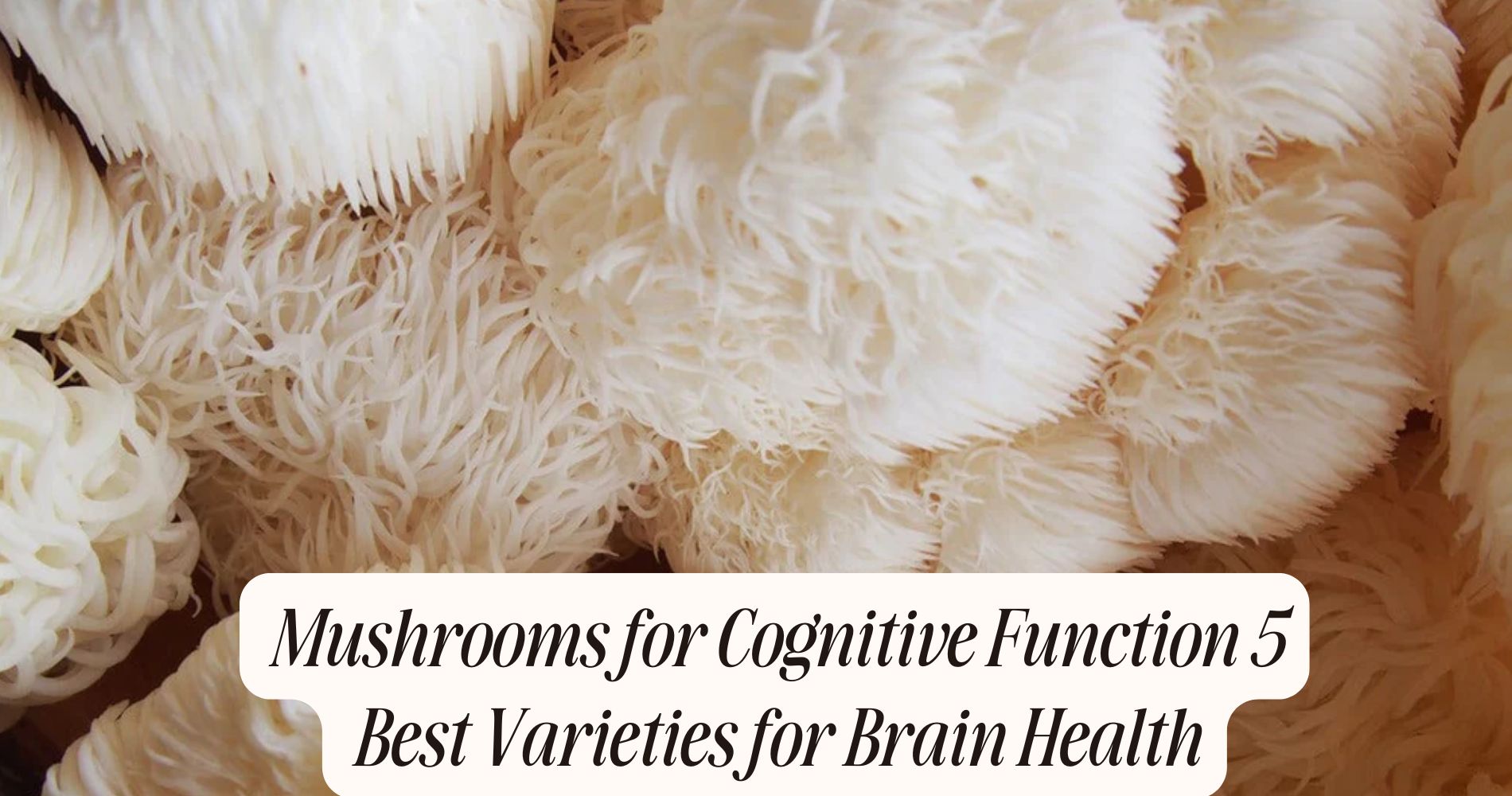
Is Eating Mushrooms Good for You? The Truth About Their Benefits
Is eating mushrooms good for you? Eating mushrooms is good for you thanks to their low calories and high nutritional value. They're packed with essential vitamins, minerals, and antioxidants, which can support your immune system and promote heart health. Varieties like shiitake and maitake help lower bad cholesterol, while their fiber content keeps you feeling full. Regular consumption may even enhance your mood and digestion. There's so much more to discover about the health benefits mushrooms offer.
Nutritional Profile of Mushrooms
Mushrooms are a nutritional powerhouse, packed with essential vitamins, minerals, and antioxidants. You'll find various mushroom varieties, each offering unique health benefits. For instance, shiitake mushrooms are rich in B vitamins and selenium, while portobellos provide ample potassium.
These fungi are low in calories and fat, making them a smart addition to your diet.

Different cooking methods can enhance their nutritional benefits. Sautéing mushrooms can increase their antioxidant levels, while grilling or roasting helps retain their nutrients. You can also enjoy them raw in salads for maximum vitamin content.
Incorporating a range of mushroom varieties into your meals not only boosts flavor but also enriches your diet with crucial nutrients, supporting overall health and well-being.
Immune System Support
The fascinating world of mushrooms offers more than just culinary delights; they can play a significant role in supporting your immune system. Certain mushroom varieties, like shiitake and reishi, are known for their immune-boosting properties.
They contain beta-glucans, which help stimulate immune cells and enhance your body's defense mechanisms. Studies suggest that regular consumption of these mushrooms can lead to improved immune responses, making you more resilient against infections.
Additionally, they provide essential nutrients like vitamin D and selenium, which also contribute to overall immune health. Incorporating a variety of mushrooms into your diet not only adds flavor but also supports your well-being by bolstering your immune system naturally.
Enjoying mushrooms might just be a tasty way to stay healthy!
Antioxidant Properties
Packed with powerful antioxidants, various mushrooms can greatly enhance your overall health.
These fungi contain antioxidant compounds like ergothioneine and glutathione, which help neutralize free radicals in your body. Free radicals can cause oxidative stress, leading to cell damage and chronic diseases.

By incorporating mushrooms into your diet, you're not just adding flavor; you're also providing your body with essential nutrients that combat these harmful molecules.
Research suggests that regular consumption of mushrooms may reduce the risk of certain diseases and contribute to overall well-being.
Heart Health Benefits
Including a variety of mushrooms in your diet can also support heart health. Research shows that mushrooms can contribute to cholesterol reduction, which is essential for maintaining a healthy cardiovascular system.
By incorporating mushrooms like shiitake and maitake, you may benefit from their ability to lower LDL (bad) cholesterol levels. In addition, mushrooms contain potassium, a mineral that can help regulate blood pressure.
Maintaining balanced blood pressure is vital for reducing the risk of heart disease. Moreover, their high fiber content aids in overall heart health by promoting better circulation.
Weight Management
When you add mushrooms to your meals, you're not just enhancing flavor; you're also supporting your weight management goals. With their low caloric content, mushrooms can help you feel full without contributing to excessive calorie intake. This makes them a fantastic option for portion control, allowing you to enjoy larger servings of food while still keeping your overall calorie count in check.
Additionally, mushrooms are rich in fiber, which promotes satiety and reduces cravings. By incorporating mushrooms into your diet, you can create satisfying meals that support your weight management journey without sacrificing taste.
Mental Health and Mood Enhancement
Mushrooms not only support your weight management goals but also play a role in mental health and mood enhancement. Research suggests that certain varieties, like shiitake and reishi, contain compounds that positively influence cognitive function.
These mushrooms are rich in antioxidants and vitamins, which may help reduce stress and anxiety levels. By incorporating mushrooms into your diet, you can benefit from their potential mood-regulating properties.

Additionally, the polysaccharides found in mushrooms may promote overall brain health, supporting your mental well-being. While mushrooms alone aren't a cure for mental health issues, they can be a valuable part of a balanced diet that aids in mood regulation and enhances cognitive performance, contributing to your overall emotional resilience.
Gut Health and Digestion
While many people may not realize it, incorporating mushrooms into your diet can greatly benefit gut health and digestion.
Mushrooms possess prebiotic properties that support the growth of beneficial gut bacteria, enhancing your overall digestive health. These compounds help create a balanced microbiome, which is essential for effective digestion and nutrient absorption.
Additionally, mushrooms contain various nutrients that promote the production of digestive enzymes, further aiding your digestive process.
By including a variety of mushrooms in your meals, you can boost your gut health, reduce bloating, and improve regularity.
Diabetes Management
Incorporating mushrooms into your diet can also play a role in diabetes management. Research indicates that certain mushrooms may help regulate blood sugar levels and improve insulin sensitivity.
For instance, varieties like shiitake and maitake contain bioactive compounds that can enhance glucose metabolism. By adding these mushrooms to your meals, you may find it easier to maintain stable blood sugar levels, reducing the risk of spikes and crashes.
Additionally, mushrooms are low in calories and carbohydrates, making them a smart choice for those looking to manage their weight alongside diabetes.
Incorporating Mushrooms Into Your Diet
Adding mushrooms to your meals can be a delicious and nutritious way to enhance your diet. You can easily incorporate mushrooms into your daily routine with a variety of mushroom recipes.
Sauté them with garlic for a quick side dish or toss them into salads for added texture and flavor.
Experiment with different culinary techniques—grilling, roasting, or even blending them into soups—to discover new tastes and health benefits.
If you're looking for a meat substitute, try using portobello mushrooms in burgers or stir-fries.
Elevate Your Wellness with SUPER MUSHROOM GUMMIES
Want to experience the benefits of 10 functional mushrooms in one easy, delicious form? SUPER MUSHROOM GUMMIES by Well Gummies are the perfect way to fuel your brain and energize your body naturally. These vegan-friendly gummies support immune health, promote sharper focus, and provide calm, sustained energy without jitters or crashes. Plus, they taste like fresh wild berries—just like your favorite candy! Enjoy the power of mushrooms in a convenient chewable form and shine all day with Well Gummies.
Frequently Asked Questions
Are Certain Mushroom Varieties Toxic or Harmful to Eat?
Yes, some toxic mushroom varieties can cause harmful effects. It's essential to identify them accurately, as consuming these mushrooms may lead to serious health issues. Always consult reliable sources before foraging or eating wild mushrooms.
Can Mushrooms Interact With Medications or Supplements?
Mushroom interactions can affect supplement effects. Certain mushrooms may enhance or inhibit the absorption of medications. Always consult your healthcare provider before adding mushrooms to your diet, especially if you're taking prescribed medications or supplements.
How Should Mushrooms Be Stored for Freshness?
To maintain freshness, store mushrooms in paper bags, avoiding plastic. Keep them in a cool, dark place or the refrigerator. Regularly check for signs of spoilage and use proper storage methods for best quality.
Are There Any Allergies Associated With Mushrooms?
Yes, mushroom allergies do exist, though they're relatively rare. Some people experience allergic reactions, including skin rashes or respiratory issues. If you suspect an allergy, consult a healthcare professional for proper diagnosis and guidance.
Can Mushrooms Be Grown at Home Safely?
Yes, you can grow mushrooms at home safely using mushroom kits. These kits provide everything you need for successful home cultivation, ensuring a controlled environment that minimizes contamination risks. Just follow the instructions carefully for best results.
Conclusion
Incorporating mushrooms into your diet can be a smart choice for your overall health. Their impressive nutritional profile offers immune support, antioxidant benefits, and heart health advantages, while also aiding in weight management and gut health. Additionally, mushrooms may enhance your mental well-being. With their versatility, you can easily add them to meals, making it simple to enjoy their numerous benefits. So, why not explore the variety of mushrooms available and boost your health today?




